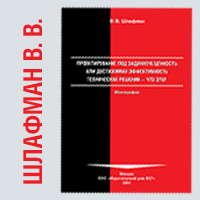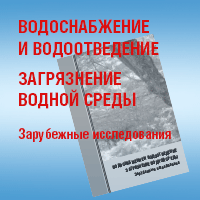№12|2014
DRINKING WATER SUPPLY
bbk 000000
UDC 628.16.067.1
Method of designing tubular porous rapid filter drainage
Summary
In recent years the specialists of water treatment plants pay much attention to rapid filter drainage systems of porous type. This design excludes the drawbacks typical for drainage systems with supporting gravel layers, major of them being gravel layer slip that causes frequent filter reloading (typically every 3–5 years). The method and basic formula for calculating tubular porous drainage are presented. In view of specific design tubular porous drainage calculations differ significantly from calculating widely used tubular perforated drainage systems of high resistance with supporting gravel layers. In the latter the pressure loss required for uniform filter wash occurs in one stage – in drainage openings. In tubular porous drainage design the pressure is successively lost in two stages – in the openings and outside porous layer, or in three stages – in the upper drain openings, inner porous layer, bottom drain openings. The summarized pressure loss in the mentioned two stages must provide for 95% uniformity of filter wash.
Key words
water supply plant , rapid filter , pressure losses , tubular porous drainage , wash uniformity
The further text is accessible on a paid subscription.
For authorisation enter the login/password.
Or subscribe
REFERENCES
- Filatov A. I., Shapovalov V. I., Raikin L. L. [Design features and experience of porous drainage systems operation in high-rate filters]. Vodosnabzhenie i Sanitarnaia Tekhnika, 2010, no. 2, pp. 48–50. (In Russian).
- Filatov A. I. Drenazhnye sistemy skorykh fil’trov [Drainage systems of rapid filters. Saarbrcken, Germany, LAP Lambert Academic Publishing, 2012, 128 p.].
- Filatov A. I. Rukovodstvo po proektirovaniiu i montazhu korrozionnostoikikh poristykh drenazhnykh sistem skorykh fil’trov [Manual on designing and installing corrosion resistant porous drainage systems of rapid filters. Rostov-on-Don, Tsentr Publ., 2014, 40 p.].







